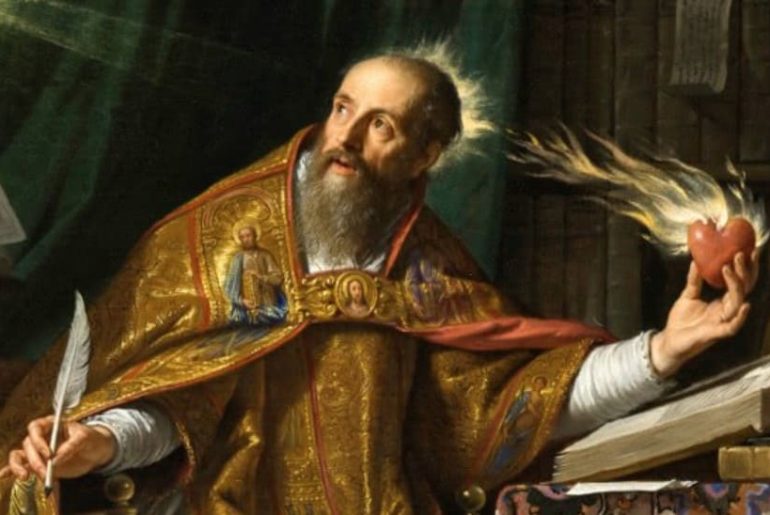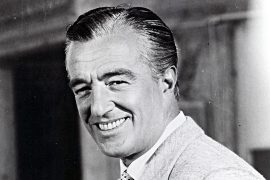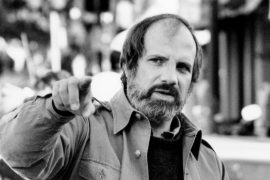Augustine’s father Patricius, a small farmer and government official, remained a follower of the Roman belief in gods until shortly before his death; his mother Monika was a Christian; his widow sister Perpetua later ran a convent in Hippo Regius. In Madauros – today’s M’Daourouch, Augustine was able to attend the grammar school because a patron made it possible for him to study the liberal arts of grammar, dialectics, rhetoric and arithmetic, geometry, astronomy and music. When he was 16 years old, he had to give up his studies due to lack of money; he returned home and joined a street gang.
A year later, Augustine was able to begin and successfully complete his studies in rhetoric in Carthage – today’s suburb of Tunis in Tunisia. He had a son named Adeodatus from a girl we didn’t know, with whom he continued to have a relationship for years to come.
Augustine felt increasing contempt for his mother’s religion. Although he read the Bible as a man of letters, he felt repelled by its unlearned language. On the other hand, he was impressed by Cicero’s Hortensius, a writing promoting philosophy; After reading it, he spontaneously joined a spiritual-religious current that was troubling the Christianity of that time, the then still young and modern Manichaeism, which taught a strict division of the world into good and evil and Augustine as the deeper and more radical form of Christianity appeared.
From about 375 Augustine was a successful professor of rhetoric in his hometown of Thagaste and then in Carthage. Here his doubts about Manichaeism matured, which became even stronger after his move to Rome in 383; nevertheless, friends from this group helped him to get a job as a rhetoric teacher in Milan, then the capital of the Roman Empire, in 384. Here he lived with his concubine, his son Adeodatus, his mother, who had come to join him after nine years of separation, his brother and two cousins. Because he was planning to marry an underage girl, his concubine left him after a decade and a half of living together, so he just took a new one. Because of a serious illness, Augustine, who lived all his life with shortness of breath and the resulting anxiety and fear of death, had to give up his professorship in rhetoric. Now he began to search for the truth behind the common philosophical teachings. His mother asserted her Christian influence; she persuaded him to sever relations with his beloved; he was also fascinated by the sermons of the Archbishop of Milan, Ambrosius, and his Neoplatonic interpretation of Scripture.
Paul’s teaching of the incarnation of God in Jesus Christ and a biography of the monk father Antonius impressed Augustine. Finally, according to his own testimony, at the beginning of August 386 – lying under a fig tree – he heard a child’s voice: Take and read … He took the Bible and came across the sentence: Let us walk honorably as in the day, not in feasts and drinking bouts , not in licentiousness and licentiousness, not in strife and jealousy, but put on the Lord Jesus Christ, and do not so cultivate the flesh that lusts arise! (Romans 13:13-14). Then a light of security flowed through him, he converted to Christianity.
Augustine withdrew from his job and with friends to the Cassiciacum estate – probably today’s Casciago near Varese, where a monument was erected to him in 1986 -, went to Milan at the beginning of 387 to seek baptism and settled there in the Easter Vigil of 387 in the Baptistery – today Ruins in the excavations under the cathedral – baptize. He returned to Thagaste, sold his fortune and lived for three years with like-minded people in a monastery-like manner, as he had done in Cassiciacum. When he stayed in Hippo Regius during a journey, he was called to the priesthood by the people and ordained to the end of 390/beginning of 391; he took on the task of preacher, which in North Africa was otherwise filled by the bishop himself, and after the death of bishop Valerius around 396 he became his successor. An enthusiastic preacher, he fiercely opposed all dissenting doctrines, had influence far beyond his diocese, although he left it only to attend the synods of the church in the Roman province of Africa proconsularis, and yet he became the spiritual leader of the western church.
As the influence of Manichaeism waned, Donatism increasingly became a challenge to the Church. At the Council in Carthage in 411 – probably held in the Basilica of Fausti, today called the Basilica of Damous el Karita – Donatism was finally condemned under Augustine’s decisive influence. In the large basilica – today called Basilica Mcidfa, of which only the remains of a chapel built there during the French colonial period can be seen – Augustine held a eulogy for Perpetua who was buried there and her companions, emphasizing in particular the exemplary role of women.
Against the background of his own experiences with common life, Augustine wrote a letter around 397 with rules for life in the monastery – whether initially intended for the women’s monastery in Hippo Regius led by his sister or for the monastery he founded for men without pastoral assignment, is controversial. Basically, the first sentence commands: Above all things, dear brothers, you should love God, then your neighbor; for these are the chief commandments given to us. There follow instructions on prayer times and practice, the organization of working hours, obedience, reading and behavior at table, behavior outside the monastery, times of speaking and silence, and punishment for disobeying these rules; From this then arose the rules for the branches of the Augustinian order, which spread widely in the centuries to come.
As one of the greatest theologians in church history, Augustine developed his teachings on original sin, divine grace, divine sovereignty and predestination in dealing with the philosophical and religious currents of his time influenced the Reformation of the Augustinian monk Martin Luther. Heavily influenced by the Greek philosopher Plato, Augustine considered the world of experience less important than the world of spirit – which for him is always the world of God’s good spirit. With Plato he denied the existence of evil per se, since God is omnipotent and good; all evil is therefore lack of good. According to Augustine, God gave human beings reason to better understand God and free will to make responsible decisions before God. Immoral decisions are those made without God. Almost 1000 of his sermons, 113 books and 218 letters have survived.
After the conquest of Rome by the Gothic king Alaric in 410, Augustine dealt intensively with paganism and Platonism. In his great Christian apology De civitate Dei, the City of God, written from 413 to 426, he presented his theologically based philosophy of history and described world history as a linear process towards its goal, perfection with God. This is intended to dispel the accusation that the fall of Rome was due to the renunciation of its traditional gods. Against the old multiplicity of gods, Augustine set the uniqueness of salvation mediated solely through Jesus Christ. After 410 he dealt extensively with Pelagianism, its ascetic rigor and its image of man; he emphasized that the grace of God is not given to facilitate a virtuous life, but to make such a life possible in the first place; in this context Augustine developed his doctrine of original sin. He succeeded in imposing this teaching on the Roman Emperor in Ravenna – not least thanks to a gift in the form of 80 Arabian stallions – and finally also on the Pope in Rome.
Augustine’s most famous work is the autobiographical Confessions, written around 400, in which he describes in 13 volumes his early life, his constant search for truth and his conversion. Through its fundamental reflections on human nature, the Confessions are much more than just a biography; they are often cited as the first autobiography in literary history, but that honor goes to Gregor Thaumaturgos. A passage in this work expressing Augustine’s ardent love of God later became the attribute of a flaming heart, distinguishing him in the depictions of Ambrose.
Other works: De libero arbitrio, About Free Will, created 389 to 395; De doctrina christiana, On Christian Doctrine, composed 397 to 428; De baptismo, contra donatistas, On Baptism, against the Donatists, written 400/401: De trinitate, On the Trinity (of God), elaborated 400 to 416; De natura et gratia, On Nature and Grace, from the year 415.
One of the numerous legends tells how Augustine, walking on the seashore and deep in thought, saw a little boy who was scooping up water with a shell and pouring it into a sand pit. When asked what he was doing, the child replied: The same as you are doing! You want to exhaust the inscrutability of God with your thoughts – I am trying to exhaust the sea!
During the siege of Hippo Regius by the Vandals in the summer of 430, Augustine fell ill with a fever. He did not want to die without first doing thorough penance. Part of this penance was not to receive any more visitors, except for his doctor and the servants who brought him food. He had the penitential psalms copied on parchment and nailed to the wall; no one could interrupt his uninterrupted reading. In the end he died without having received the last sacraments, since no priest was allowed to enter his room either.
Augustine’s bones were probably taken to Sardinia around 500 by the bishops of North Africa who had been banished by the Vandal king Thrasamund; around 725 they were bought by Saracen pirates who owned the relics by the Lombard king Liutprand and – allegedly under Bishop Armentarius, actually under his successor Peter I – brought to Pavia, where they were allegedly rediscovered in 1695 and have been in the church of S. Pietro ever since to be venerated in Ciel d’Oro. Augustine is considered the most important church father of the western church and is called a fighter against heresies. His surname Aurelius was never attested by himself, it may be due to a confusion with Augustine’s colleague and contemporary Aurelius of Carthage.
What did Augustine accomplish?
After years of being a Manichean, under the influence of the preaching of Bishop Ambrose of Milan, he was baptized in 387; from 395 until his death in 430 he was bishop of Hippo Regius.
Where did Augustine die?
Hippo Regius was an ancient coastal city in Numidia, Numidia, in modern-day eastern Algeria, located near the mouth of the Seybouse River. The ruins are located south of the city of Annaba.
Where was Augustine baptized?
In 387 he was baptized by St. Ambrose in Milan. Ordained Bishop of Hippo Regius in 395, Augustine became one of the most important teachers of the Catholic Church through numerous writings.
Where did Augustine live?
- Rome
- Milan
- Souq Ahras
- Carthage
What did Augustine say?
As long as we live we fight, as long as we fight it is a sign that we are not defeated and that the good spirit dwells in us. And if death does not find you a victor, it shall (at least; ed.) find you a fighter.
So what is the time of Augustine?
Time is usually divided into past, present and future. Augustine is certain, however, that “past time would not exist if nothing passed, and future time would not exist if nothing came, and present time would not exist if nothing were.
What does Augustine mean by eternity?
Eternity is thus presumably understood by Augustine as an infinite and timeless “life” in which man has attained perfect possession of his being.





